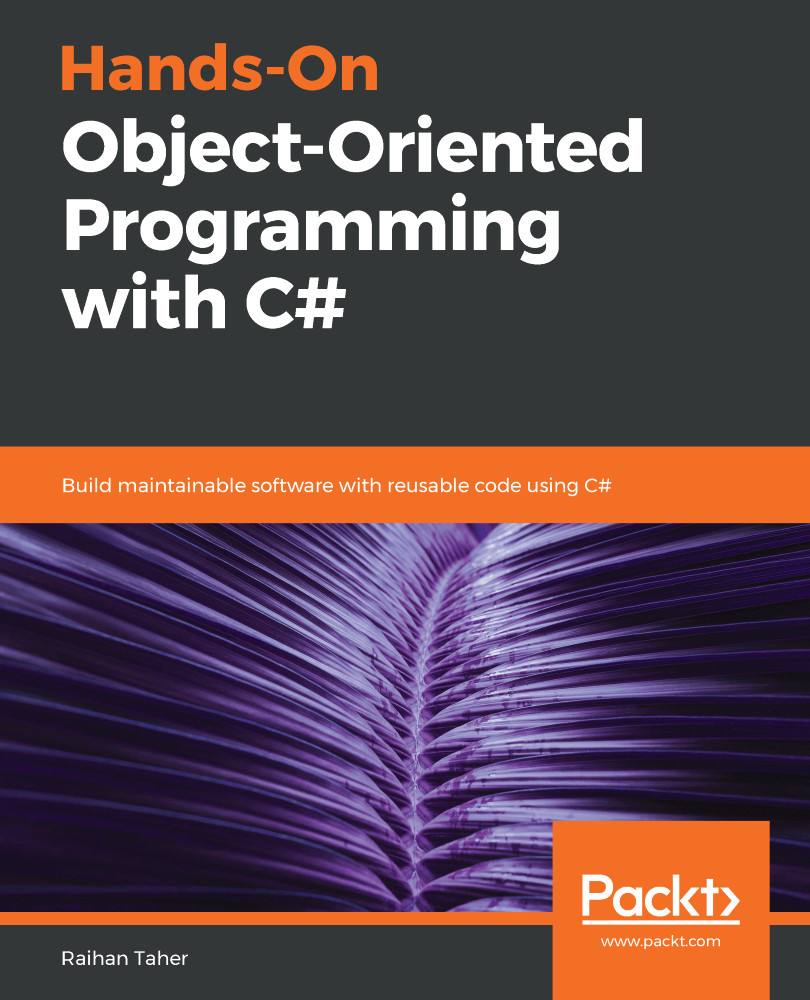A class is a blueprint, which means it contains the members and methods that the instantiated objects will have. An interface can also be categorized as a blueprint, but unlike a class, an interface doesn't have any method implementation. Interfaces are more like a guideline for classes that implement the interface.
The main features of interfaces in C# are as follows:
- Interfaces can't have a method body; they can only have the method signature.
- Interfaces can have methods, properties, events, and indexes.
- An interface can't be instantiated, so no object of an interface can be created.
- One class can extend multiple interfaces.
One of the major uses of an interface is dependency injection. By using interfaces, you can reduce the dependencies in a system. Let's look at an example of an interface:
interface IBankAccount {
void Debit(double amount...

